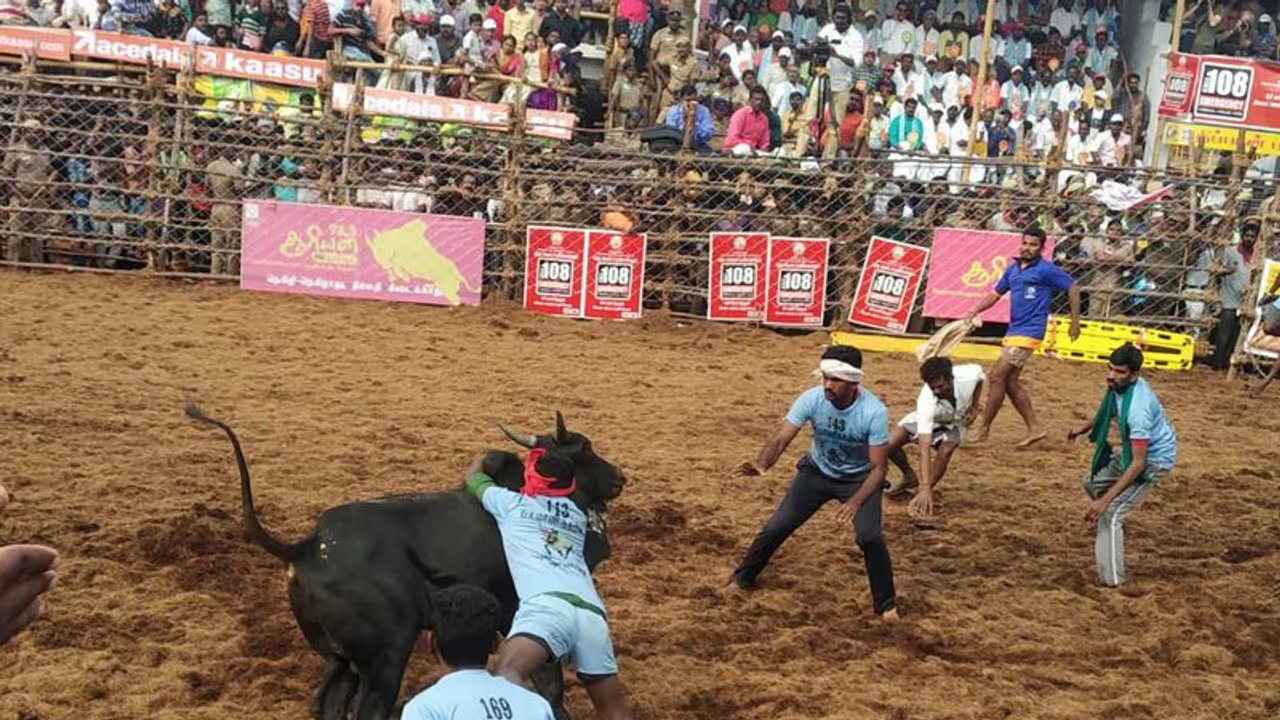The Supreme Court had banned Jallikattu in 2014. But after week-long protests in 2017, the Tamil Nadu government passed an amendment to the Prevention of Cruelty to Animals Act, 1960 allowing organising of Jallikattu with restrictions.
Chennai: Jallikattu, the bull-taming sport was held in Tamil Nadu on Tuesday and has left at least 57 people injured in the state.
In the event organised at Avaniapuram in Madurai, at least 44 people including bull tamers, handlers and those watching the sport were injured. Eight people who were severely injured were admitted to Government Rajaji Hospital and are being treated there.
In the bull-taming event in Pudukottai on Monday, 13 people were reportedly injured. Nine of them were given first aid at the spot of the event and other four are being treated at Thanjavur Medical College.
This year, the Madurai district administration made it mandatory for bull-tamers to insure themselves. The participants of Jallikattu were asked to insure themselves under the Pradhan Mantri Suraksha Bima Yojana (PMSBY) scheme. The scheme provides them with risk coverage of up to Rs 2 lakh.
Is Jallikattu legal?
The Supreme Court had banned Jallikattu in 2014. This verdict triggered massive protests in Tamil Nadu. In 2016, the Centre yielded to the pressure of the people of Tamil Nadu and allowed bulls to be used in the sport.
But this was challenged by animal rights groups and led to the Supreme Court quashing the permit.
In 2017, people of Tamil Nadu gathered in another mass protest on Chennai's Marina beach demanding to lift the ban on Jallikattu. After a week of protests, Tamil Nadu government passed an amendment to Prevention of Cruelty to Animals Act, 1960, a central law. The amendment was approved by the President of India.
This allowed people to take part in Jallikattu with some restrictions. However, People for the Ethical Treatment of Animals (PETA) have challenged this amendment in the Apex court and the SC has proposed to form a bench to examine the necessity of Jallikattu as a cultural event.
Thus, though it is not illegal to play the sport, legal hurdles are not yet completely removed.
